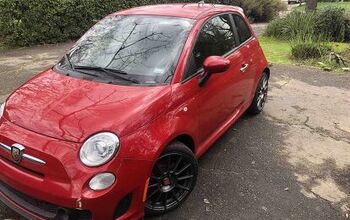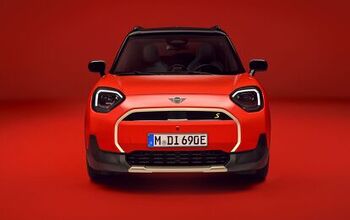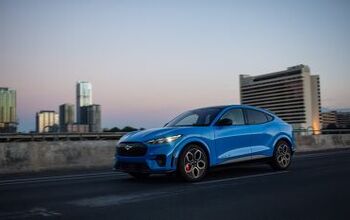Wholesale Used Car Prices Fall While Retail Prices Remain Elevated

A couple of months ago, we reported on the decline of wholesale used car prices but cautioned you not to get too excited about getting a killer deal on your next purchase. Now, The Hill has more news on the subject, and, unfortunately, it’s not all that great for car buyers.
The Hill reported that the “wholesale price of used cars is falling off a cliff while the retail prices that car shoppers are paying are way up.” As it rightly points out, this seems to indicate that dealers are making more money while buyers are still paying through the nose.
The Manheim Index showed a 2 percent decline in used car prices between September and October and a 10.3 percent decline over the last year. Luxury vehicles and pickup trucks saw larger than average declines of 12.3 and 8.4 percent, respectively.
At the same time, retail prices for used cars have climbed 7.2 percent since last year, meaning dealers are keeping the extra profit and may be egging on inflation in the used car markets. Claudia Sahm, a former Fed banker, told The Hill that inflation is driven by prices set by businesses, not by some overarching authority on pricing. Unfortunately, if companies want to charge more, that’s the price consumers will see.
The bright spot in this report is that the distance between wholesale and retail pricing could shrink as dealers start to sell some of their overpaid-for inventory. There’s typically a lag time while dealers’ selling prices adjust to new wholesale prices, as they’ve paid more for cars that are now selling for less and need time to move the inventory.
Inventories are still short nationwide, which will prevent a major collapse in prices on both the wholesale and retail sides of the house. Prices are expected to remain higher than usual for some time, so it could be a year or more before things stabilize.
[Image: cleanfotos via Shutterstock]
Become a TTAC insider. Get the latest news, features, TTAC takes, and everything else that gets to the truth about cars first by subscribing to our newsletter.

Chris grew up in, under, and around cars, but took the long way around to becoming an automotive writer. After a career in technology consulting and a trip through business school, Chris began writing about the automotive industry as a way to reconnect with his passion and get behind the wheel of a new car every week. He focuses on taking complex industry stories and making them digestible by any reader. Just don’t expect him to stay away from high-mileage Porsches.
More by Chris Teague
Latest Car Reviews
Read moreLatest Product Reviews
Read moreRecent Comments
- V8fairy Not scared, but I would be reluctant to put my trust in it. The technology is just not quite there yet
- V8fairy Headlights that switch on/off with the ignition - similar to the requirement that Sweden has- lights must run any time the car is on.Definitely knobs and buttons, touchscreens should only be for navigation and phone mirroring and configuration of non essential items like stereo balance/ fade etc>Bagpipes for following too close.A following distance warning system - I'd be happy to see made mandatory. And bagpipes would be a good choice for this, so hard to put up with!ABS probably should be a mandatory requirementI personally would like to have blind spot monitoring, although should absolutely NOT be mandatory. Is there a blind spot monitoring kit that could be rerofitted to a 1980 Cadillac?
- IBx1 A manual transmission
- Bd2 All these inane posts (often referencing Hyundai, Kia) the past week are by "Anal" who has been using my handle, so just ignore them...
- 3-On-The-Tree I was disappointed that when I bought my 2002 Suzuki GSX1300R that the Europeans put a mandatory speed limiter on it from 197mph down to 186mph for the 2002 year U.S models.


































Comments
Join the conversation
Dealers were hurting during the shortage. Time to get back even.
When Carvana goes under, it will change the market overnight with a flood of vehicles for sale.